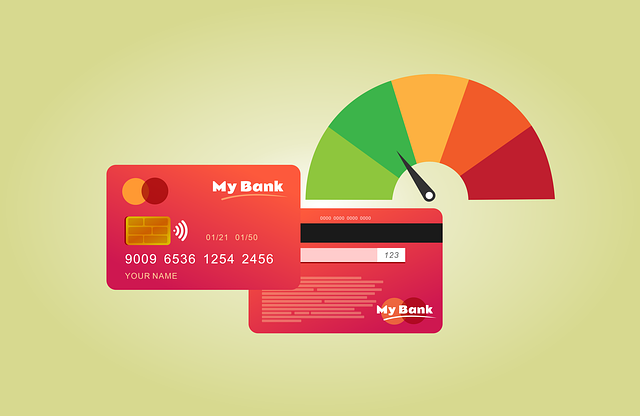What is an Annual Percentage Yield (APY)?
An Annual Percentage Yield (APY) represents the total interest earned on an account, including compound interest. APY can accumulate on savings or checking accounts from a bank or credit union. It’s crucial for individuals to understand how APY works to make informed financial decisions.
Calculating APY involves considering factors such as the initial investment, interest rate, and compounding frequency. By using the formula: APY = (1 + (r/n))^n – 1, where r is the annual interest rate and n is the number of compounding periods per year, one can determine the APY accurately.
Understanding APY enables savers to compare different financial products effectively. Higher APY values indicate more significant returns on investments over time, making it a valuable metric for assessing the profitability of savings accounts or investments.
Business investors should also be aware that while a higher APY may seem attractive, it often comes with certain conditions, such as minimum balance requirements or withdrawal restrictions. Thus, weighing the benefits and limitations before choosing a financial product based on its APY value is essential.
Why is APY important in Business Investment & Savings?
Calculating annual percentage yield is crucial for businesses to assess the profitability of their investments and savings accurately. By knowing the APY, companies can make informed decisions on where to allocate their funds.
Understanding the APY helps businesses compare investment options based on their potential returns over a year. This knowledge enables them to choose the most lucrative opportunities, maximizing their profits.
Moreover, by calculating the APY, businesses can forecast their future earnings more accurately. This allows them to plan ahead, set realistic financial goals, and ensure sustainable growth and stability.
In essence, the APY serves as a valuable tool for businesses to optimize their financial strategies, increase their returns on investments, and secure a stable financial future.
How do I Calculate Annual Percentage Yield?
Calculating the annual percentage yield (APY) requires using a specific formula. The formula considers the stated interest rate and the number of compounding periods in a year.
Step-by-Step Guide for Calculating APY
- Determine the Stated Interest Rate: This is the interest rate that the financial institution advertises.
- Find the Number of Compounding Periods: Identify how often interest compounds in a year. For example, is it compounded monthly, quarterly, or annually?
- Use the APY Formula: Calculate APY using the formula:
- APY = (1 + (r/n))^n – 1
- Where r is the stated annual interest rate, and n is the number of compounding periods.
Ensuring accuracy in calculating APY is crucial for making informed financial decisions. Even a slight error can significantly impact your returns on investments or savings accounts.
What Business Savings Accounts have the highest APY?
Business owners looking to maximize their savings should consider choosing high-yield savings accounts. This type of business bank account offers competitive interest rates, helping businesses grow their funds faster.
While almost all savings accounts yield, look for ones with a high APY. Here are some business savings accounts with the most competitive APY returns.
Prime Alliance Bank’s Business Money Market Account
Prime Alliance Bank offers a competitive business money market count with a high APY, making it an excellent option for businesses looking to maximize their savings potential. With features like tiered interest rates and easy access to funds, this account is designed to help businesses grow their savings efficiently.
- APY: 4.5%.
- Maintenance Fee: None.
- Minimum Balance for Max APY: $200,000.
Live Oak Bank Business Savings Account
Live Oak Bank offers a competitive APY for businesses looking to maximize their savings potential. With no monthly fees and a low minimum balance requirement, it’s a great option for businesses of all sizes.
- APY: 4.00%.
- Maintenance Fee: None.
- Overdraft fees: $25.
Axos Bank’s Business Savings Account
This is another excellent option for businesses looking to maximize their savings. With features like no monthly maintenance fees and easy online account management, it is a convenient choice for businesses of all sizes.
- APY: 4.01%.
- Maintenance Fee: None.
- Overdraft fees: $25.
NBKC Bank’s Business Money Market Account
A flexible and convenient solution for small businesses that combines the benefits of a business checking account and a business savings account. This allows small business owners to manage their funds effectively.
- APY: 2.50%.
- Maintenance Fee: None.
- Minimum Deposit: $0.
First Internet Bank’s Business Money Market Savings
This account offers competitive interest rates with a tiered structure that rewards higher balances. Deposits in the account are FDIC-insured, ensuring the security of funds. First Internet Bank’s online platform is user-friendly and accessible, allowing businesses to easily navigate and manage their accounts.
- APY: 1.51%.
- Maintenance Fee: $5 (options to waive the fee).
- Overdraft fees: $30.
Considerations when Choosing a Business Savings Account
When comparing different business savings accounts, look at factors such as:
- Minimum balance requirements.
- Fees and charges.
- Accessibility to funds.
It’s essential to strike a balance between a high APY and other account features that align with your business’s financial needs and goals.
What are the benefits of a Business Savings Account?
Business savings accounts offer several advantages for savers looking to maximize their returns. One significant benefit is earning higher interest rates than regular savings accounts. This means that your money can grow faster over time.
Online banks often offer business savings accounts with competitive Annual Percentage Yields (APY). These accounts typically have lower fees and minimum balance requirements, making them attractive options for businesses of all sizes.
Moreover, having a business savings account can help you separate your business finances from your personal finances. This separation makes it easier to accurately track business expenses and profits, simplifying tax preparation and financial management.
Business savings accounts come with perks like access to business credit cards. These credit cards can offer rewards and cashback opportunities on business-related purchases, providing further financial benefits for account holders.
What are the drawbacks of a Business Savings Account?
Business savings accounts offer stability and security for funds, yet they have certain limitations. One drawback is the lower interest rates than other investment options, resulting in slower wealth accumulation. Another effect is the potential maintenance fees that can eat into your savings over time.
Moreover, some business savings accounts have minimum balance requirements, which can lead to penalties if not met. This restriction may hinder small businesses with fluctuating cash flow. The liquidity of funds in these accounts could be limited, making it challenging to access money quickly in emergencies.
Furthermore, unlike some investment vehicles, business savings accounts do not offer tax advantages or significant growth potential. The lack of flexibility regarding withdrawals and transactions could also be a disadvantage for businesses needing quick access to their funds.
Business Savings Account Pros & Cons
Pros:
- Helps separate personal and business finances.
- Can earn interest on deposited funds.
- Provides a safe place to store excess cash.
- Helps accumulate funds to use in case of emergencies.
Cons:
- Limited number of transactions allowed per month.
- May have minimum balance requirements or fees.
- Interest rates may be lower compared to other investment options.
- Funds may not be as easily accessible as a checking account.
What’s considered a Good Annual Percentage Yield?
A good APY for a business savings account typically ranges from 0.50% to 2.00%, but it can vary depending on market conditions and the financial institution offering the account.
The national average savings rate for personal savings is an APY of 0.45%. Ideally, a competitive APY for business savings should be above 2% to ensure your savings grow effectively.
When evaluating different options, look for compounding frequency. The more frequent the interest compounds, the higher your APY will be. A prolonged period of low interest rates can impact what is considered a good APY. Even a rate slightly above 1% might be deemed favorable during such times. However, a good APY would typically exceed 3% in periods of higher interest rates.
Moreover, online banks and credit unions often offer better APYs than traditional brick-and-mortar banks due to lower overhead costs. This difference can result in significantly higher yields on savings over time. Also, consider any potential fees associated with the account that could limit your earnings.
Key Points:
- Look for rates above 2% to beat inflation.
- Consider compounding frequency and any associated fees.
- Online banks and credit unions may offer better APYs than traditional banks.
Frequently Asked Questions
Here are the most common questions about calculating annual percentage yield.
Does APY use Simple or Compound Interest?
APY utilizes compound interest, which means interest is calculated on both the initial amount of money and any previously earned interest. This compounding interest effect can lead to higher returns over time.
When calculating APY, consider the compounding periods, such as daily, monthly, or annually. The more frequent the compounding, the higher the APY due to more frequent interest calculations.
Simple Interest: A type of interest calculated only on the principal amount of a loan or investment. It does not take into account any interest that has been previously earned or accumulated.
Compound Interest: A type of interest calculated on the initial principal amount and the accumulated interest from previous periods. This means that over time, the interest earned not only on the original investment but also on the interest added to the principal. Compound interest allows for an exponential growth of funds over time, making it a powerful tool for long-term investing.
What’s the difference between APY and APR?
The annual percentage yield (APY) calculates interest earned on an investment or deposit account. Annual percentage rate (APR) reflects how much interest is paid on a credit account, such as a business credit card or business loan, in a given year.
Knowing the distinction between APY and APR is essential for investors or savers. A higher APY means your money will grow faster due to compound interest working in your favor. On the contrary, a higher APR may indicate higher borrowing costs. In short, you want to look for a high APY for savings and investments and a low APR when borrowing business funds.
How does Annual Percentage Yield Work for Business Investments?
When a business invests in a financial product with a specific APY, it calculates the total amount of interest earned over one year. This allows businesses to assess the potential returns on their investments accurately.
Calculating APY for business investments involves considering factors such as compounding periods, initial investment amounts, and any additional contributions made over time. These calculations help businesses project future earnings and make well-informed decisions regarding their investment portfolios.
Do I have to pay taxes on APY for my Business Investment Account?
Businesses must pay taxes on interest earned from their investment accounts, including Business Investment Accounts. Tax implications affect the APY, requiring consideration of applicable rates to calculate after-tax APY. Understanding these impacts is crucial for informed investment decisions and tax compliance.
Is APY paid out monthly or annually?
APY is an annualized figure, so it represents the total amount of interest you would earn on an investment over one year. However, some financial institutions may pay out interest monthly or quarterly based on your account terms.
Calculating Annual Percentage Yield – Final Thoughts
Being able to calculate annual percentage yield (APY) is crucial to navigating the best savings and investment accounts for your small business. Utilizing the power of compound interest can help exponentially grow your liquid assets.
Contact us if you have more questions about APY or to apply for a small business loan. Our alternative business financing experts can help you find the best funding solutions for your needs.


















